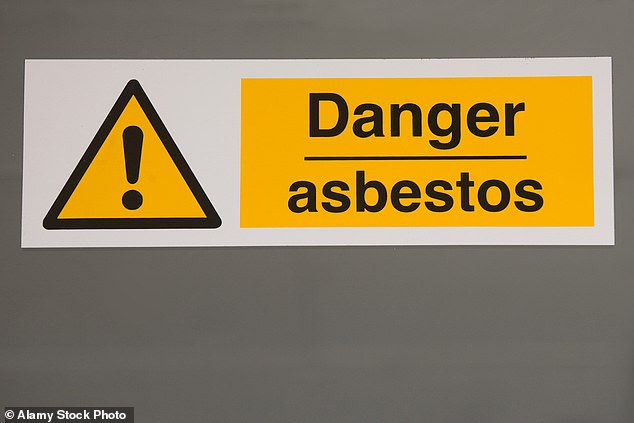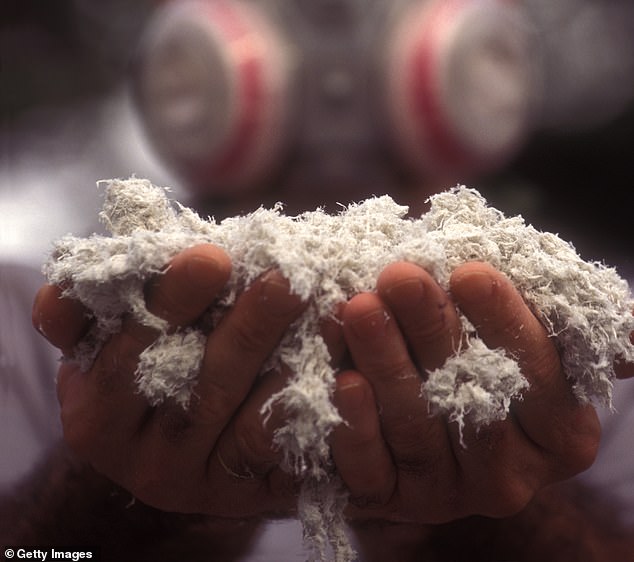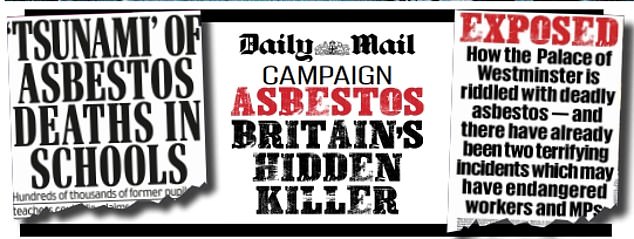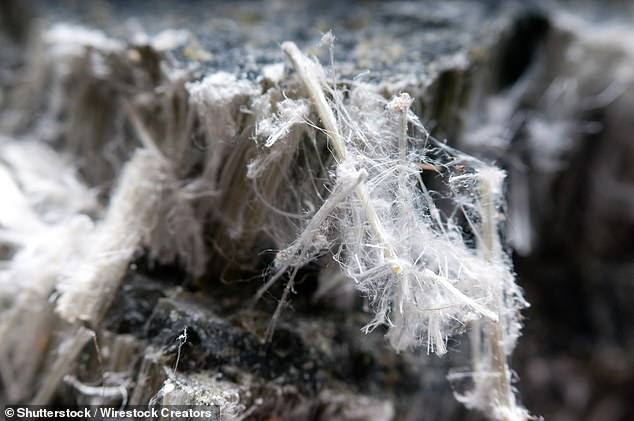Asbestos killed nine times more military veterans than there were British victims of the Taliban during the Afghan campaign, government records reveal.
Exposure to the deadly material in poor military accommodation, ships, submarines, helicopters and even tanks is causing an average of 89 cases a year of mesothelioma – a fatal cancer caused by asbestos.
Former service personnel could be up to ten times more likely to develop an asbestos-related disease than the general public, says the British Occupational Hygiene Society, which campaigns for workplace safety.
A compensation row has also broken out, with affected veterans offered significantly less than civilians.
Over the past nine years, since a military mesothelioma compensation scheme was introduced, Ministry of Defence figures show there have been 803 payouts totalling £112.5million. All of the claimants were terminally ill.
A similar number died from asbestosis and other asbestos-related lung cancers, annual Health and Safety Executive figures suggest.
During the 20 years British service personnel were deployed to Afghanistan – from 2001 to 2021 – that equates to 3,560 asbestos-related deaths among veterans, which is thought to be a conservative estimate.
In comparison, 405 serving men and women lost their lives due to the hostile actions of the Taliban, out of a total of 457 UK casualties in Afghanistan.

Asbestos killed nine times more military veterans than there were British victims of the Taliban during the Afghan campaign, government records reveal. Former Royal Marine Edward Hill (pictured) is leading a legal action by 260 ex-Marines against the MoD

Exposure to the deadly material in poor military accommodation, ships, submarines, helicopters and even tanks is causing an average of 89 cases a year of mesothelioma – a fatal cancer caused by asbestos

Former service personnel could be up to ten times more likely to develop an asbestos-related disease than the general public, says the British Occupational Hygiene Society, which campaigns for workplace safety. Pictured: Asbestos fibres
Liz Darlison, chief executive of the charity Mesothelioma UK, said: ‘We should hang our heads in shame – exposing our boys and girls to asbestos is killing them way faster than the Taliban ever could.’
Asbestos-related disease is Britain’s biggest industrial killer, taking more than 5,000 lives a year. Just over half of those are due to mesothelioma, an incurable cancer affecting the lungs and stomach membrane.
Symptoms can appear anything from 20 to 60 years after exposure to asbestos fibres. It is always fatal, and once victims are diagnosed, most die in a year.
The Daily Mail’s Asbestos: Britain’s Hidden Killer campaign has been calling for Government action and demanding a phased removal of the material from public buildings, plus the establishment of a register to record where the material is and its condition.
Until 2016, veterans with mesothelioma could not claim compensation from the MoD under the legal doctrine of Crown Immunity. Legislation was passed in 2014 to waive that immunity and a War Pension Scheme was established.
Claims for other diseases such as asbestosis can sometimes be made to the Armed Forces Compensation Scheme depending on strict circumstances.
Ms Darlison said: ‘Our national network of mesothelioma nurses see a disproportionate number of military veterans. It isn’t something that’s talked about – but it should be. It’s a national disgrace.
Even more of a disgrace is how they are treated by the military once their disease is diagnosed.’

Liz Darlison (pictured), chief executive of the charity Mesothelioma UK, said: ‘We should hang our heads in shame – exposing our boys and girls to asbestos is killing them way faster than the Taliban ever could’

The Daily Mail’s ‘Asbestos: Britain’s Hidden Killer’ campaign has been calling for Government action and demanding a phased removal of the material from public buildings, plus the establishment of a register to record where the material is and its condition
Research for Mesothelioma UK by Sheffield University found serious inequalities in how military veterans are treated compared with civilians.
Under the War Pension Scheme, those diagnosed can take either a weekly or monthly pension or a one-off payment of £140,000. Most take the payment, knowing they have only a year to live. That has not been increased for nine years.
Personal injury lawyers say civilians commonly receive £100,000 more when they make claims against workplaces where they were exposed.
Ms Darlison added: ‘On top of that, civilian settlements often include provisions that cover for private, often novel or cutting-edge treatments. Military settlements don’t include that provision, which is grossly unfair.
‘Civilian families can make compensation claims after a loved one has died while, under the War Pension Scheme, families of veterans cannot.’
Emma Lewell, Labour MP for South Shields, whose grandfather died from mesothelioma, said: ‘It can’t be right that those who have served get lesser compensation than civilians. This needs to be looked at urgently.’
Former Royal Marine Edward Hill is leading a legal action by 260 ex-Marines against the MoD alleging they were exposed to asbestos during military exercises in Latvia in 2018 and 2019, yet were not allowed to move camp away from it.
He said: ‘According to my own research, asbestos-related disease kills more veterans than anything after natural causes.

Over the past nine years, since a military mesothelioma compensation scheme was introduced, Ministry of Defence figures show there have been 803 payouts totalling £112.5million. All of the claimants were terminally ill. Pictured: asbestos fibres

Emma Lewell (pictured), Labour MP for South Shields, whose grandfather died from mesothelioma, said: ‘It can’t be right that those who have served get lesser compensation than civilians. This needs to be looked at urgently’
‘That veterans aren’t treated as well as civilians is a disgrace. The Government harps on quite a lot about the Armed Forces Covenant, which is supposed to guarantee the welfare of those who have served, but in my experience the Covenant isn’t worth the paper it’s written on.’
Professor Kevin Bampton, chief executive of the British Occupational Hygiene Society, said the Government needed an ‘end-to-end strategy’ for protecting service personnel from the dangers of asbestos in their homes and in equipment.
‘You could reasonably expect a cause of premature deaths for service personnel to be combat injury,’ he said. ‘You don’t expect nine times as many people to die from asbestos-related disease, which is preventable and completely unnecessary.’
The MoD said compensation payments to veterans affected by mesothelioma cannot be compared with civilian claims as the standard of proof of exposure required are lower.
And while this has not increased, if a War Widow(er) Pension is chosen instead, this increases annually with inflation. ‘We take the health and safety of our service personnel and defence employees extremely seriously,’ it said.












